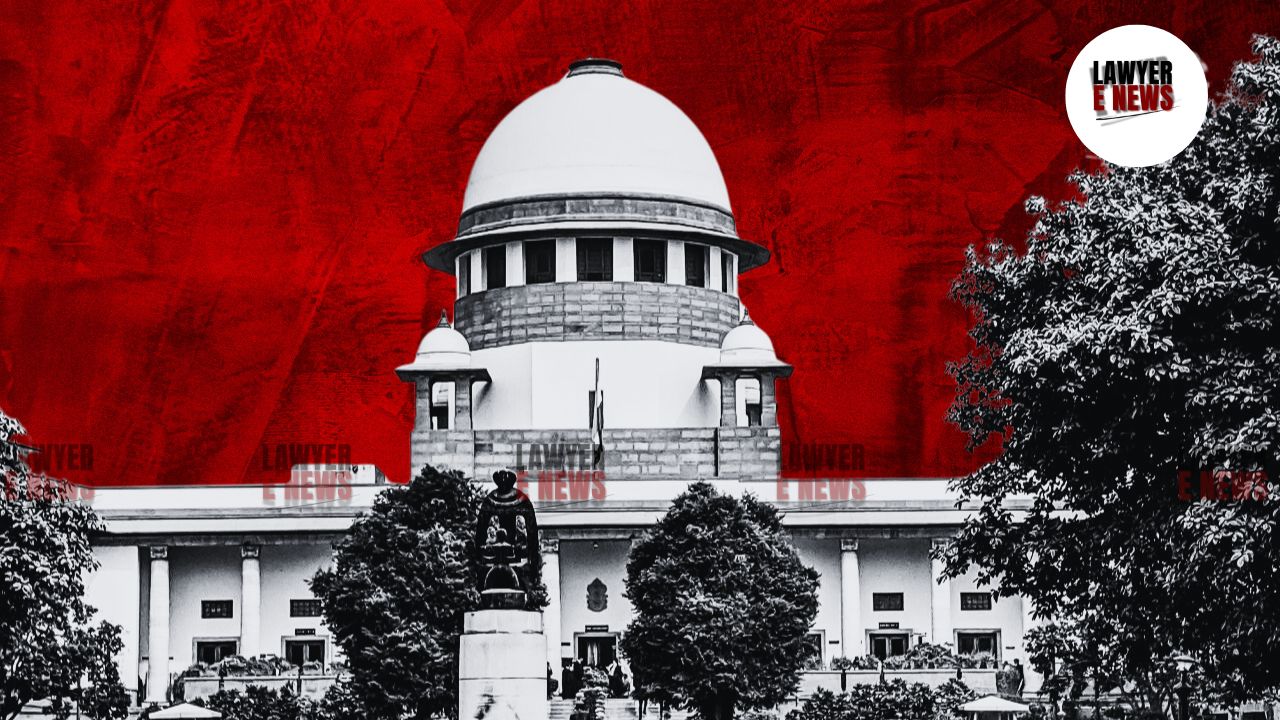-
by Admin
16 February 2026 1:47 PM



In a landmark ruling Supreme Court of India significantly enhanced the compensation awarded to a motorcycle accident victim, holding that the impact of an injury on a self-employed person’s ability to earn must be fully recognized. The Bench of Justice Sanjay Karol and Justice Prashant Kumar Mishra increased the compensation from ₹10,10,004 (as awarded by the High Court) to ₹28,93,494, acknowledging that the functional disability suffered by the claimant was 90% rather than the 50% determined by the lower courts.
"The compensation must not be restricted to the mechanical application of precedents but should reflect the real and practical difficulties faced by the victim," the Court observed while enhancing the award.
The case arose from a motor accident on April 3, 2018, when the 23-year-old claimant, Sanjay Rajpoot, was returning home on his motorcycle near Gora Machhia village, Jhansi. A bus, bearing registration number DL-1PB-9197, coming from the wrong side, hit him head-on, resulting in severe injuries, including the amputation of his right leg above the knee.
The Motor Accident Claims Tribunal (MACT), Jhansi, in its decision dated November 20, 2019, held the bus driver and the insurance company jointly and severally liable to pay compensation. However, it fixed the claimant’s disability at 50% and determined his notional income at ₹6,000 per month, ultimately awarding ₹6,70,000 with 6% interest.
Dissatisfied with this assessment, the claimant appealed before the Allahabad High Court, which increased the compensation to ₹10,10,004, granting an additional ₹1,00,000 under ‘pain and suffering’ and 40% towards future prospects. However, the functional disability was still not reassessed, prompting the claimant to approach the Supreme Court.
"For a Self-Employed Person, Mobility is the Key to Livelihood"
The Supreme Court took a critical view of the lower courts' failure to correctly assess the impact of disability on the claimant’s earning capacity.
"The claimant is not a salaried employee who can continue earning with minimal adjustments. He was self-employed, managing his own business, which required mobility. The loss of a leg has effectively rendered him incapable of performing his previous occupation," the Court observed.
Rejecting the 50% disability assessment, the Court ruled that the claimant must be considered 90% disabled for compensation purposes.
"When disability impairs a person’s ability to perform their work, the percentage must reflect this reality rather than be based solely on medical assessment," the judgment stated.
"Age Must Be Determined by Documentary Evidence, Not Mere Assumptions"
The Supreme Court also corrected an error in the claimant’s age determination, which had affected the multiplier used in calculating future income loss.
"The lower courts considered his age as 26, despite clear documentary evidence—his matriculation certificate, Aadhaar, and PAN card—showing that he was born on November 13, 1995. At the time of the accident in 2018, he was 22 years old, not 26," the Court noted.
Applying the Sarala Verma v. DTC (2009) 6 SCC 121 precedent, the Court ruled that the appropriate multiplier should be 18 instead of the one used by the lower courts.
Taking into account future prospects, medical expenses, loss of marriage prospects, and assistive devices, the Supreme Court enhanced the total compensation to ₹28,93,494, a substantial increase from the ₹6,70,000 awarded by MACT and ₹10,10,004 granted by the High Court.
"The compensation must serve its true purpose—to provide the victim with the means to rebuild his life with dignity," the Court emphasized.
"A Judgement That Restores Financial Justice to Accident Victims"
This ruling sets an important precedent in motor accident compensation claims, particularly for self-employed individuals whose disabilities directly affect their livelihood. By ensuring a realistic assessment of functional disability and correcting age-related miscalculations, the Supreme Court has reaffirmed that compensation must be just, fair, and reflective of the true hardships suffered by the victim.
"When justice demands a reassessment, courts must not hesitate to intervene. Compensation is not charity—it is a right," the Court concluded.
Date of decision: 11/02/2025
